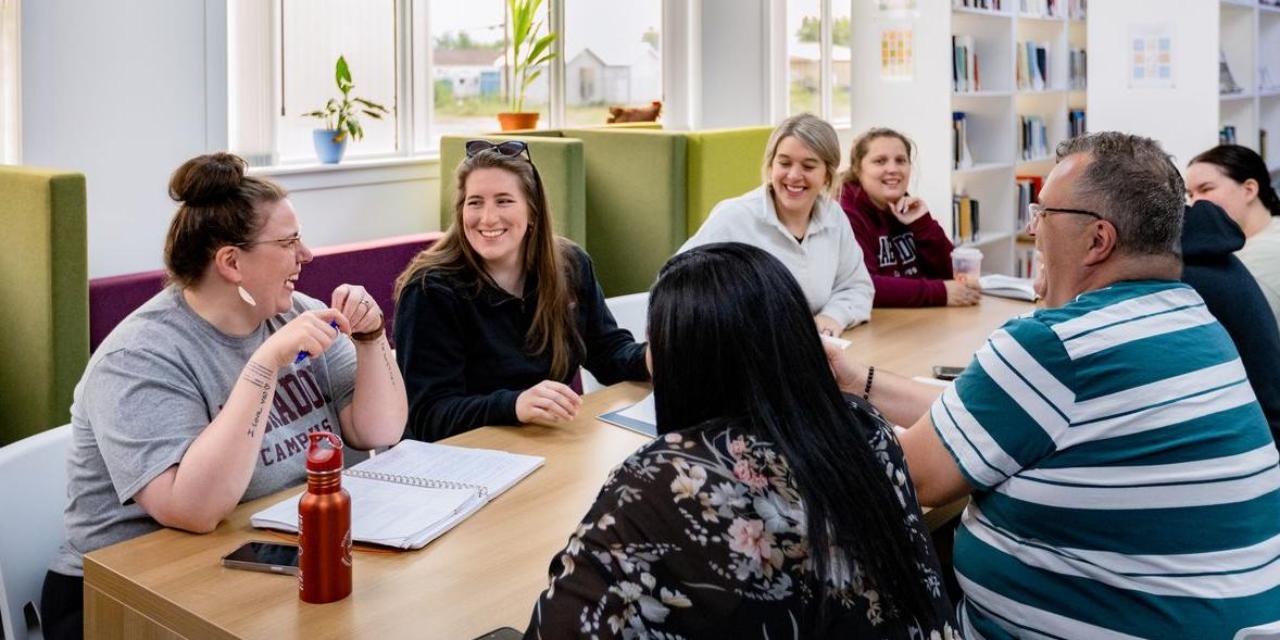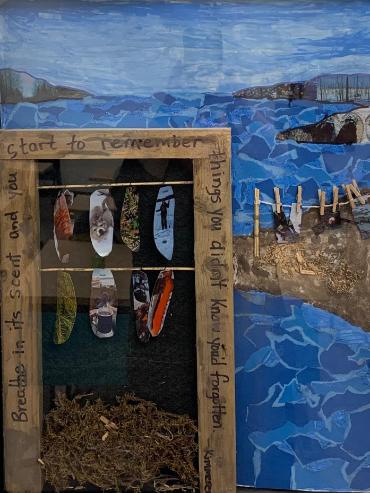Learning and leading
In 2024, as a doctoral student in the Arctic and Subarctic Futures Program at Memorial’s Labrador Campus, Jodie Lane created a shadowbox to express her connection to the land and her sense of belonging in Labrador.
She used berry bushes left over from her previous year’s smokehouse. She incorporated soot from her woodstove and the oil of smoked fish so that others could experience her love of the landscape in a tangible way.
It was an artistic cultural expression and an indication of just how much a sense of place can shape an individual’s identity.
Born and raised in Makkovik, Ms. Lane knows first-hand what it means to grow up in Nunatsiavut with a love of community, tradition and place.
After earning a bachelor’s degree in sociology from the University of Guelph and a master’s in education from Mount Saint Vincent University, she returned home determined to make education in Labrador reflect the people it serves.
As director of education for the Nunatsiavut Government, Ms. Lane has worked to put Inuit knowledge and culture at the center of schooling.
She helped develop the Labrador Inuit Society & Culture high-school course, which ensures that young people learn about their own history, traditions and values in the classroom.
In partnership with the Labrador Campus, she played a key role in creating the Inuit Bachelor of Education Program, which trains teachers who are deeply grounded in Inuit ways of knowing. These programs aren’t just courses — they are vital acts of cultural renewal.
It was her involvement with the Labrador Campus that inspired Ms. Lane to enrol in the graduate program and complete her PhD at home.

Jodie Lane leads a discussion at Labrador Campus. Photo from Labrador Campus Archives.
And for Ms. Lane, that means her research isn’t disconnected from the place she is so committed to serving. It isn’t something abstract — it’s rooted in land, language and community. Proof that scholarship and culture can inhabit the same space.
That philosophy took another leap forward in 2025, when the Labrador Campus announced a new Indigenous-led teacher education program co-designed by the Nunatsiavut Government, Mamu Tshishkutamashutau Innu Education and Memorial.
Backed by a $1-million Rideau Hall Foundation grant, the program offers culturally grounded training that prepares Inuit and Innu teachers to stay and teach in their own communities. Ms. Lane was one of the driving forces behind its creation — a bridge between the university and the people it serves.
The problems she’s tackling in Labrador are not small. Teacher shortages, high turnover and culturally irrelevant curricula have long been barriers in Labrador. For too long, the system asked Indigenous students to leave their language, traditions and even their home communities behind to succeed.
Ms. Lane is proving another path is possible. It’s one where education strengthens cultural identity rather than undermines it and where the next generation of teachers are not outsiders passing through, but community members carrying knowledge forward.
Her impact can be measured by the programs she’s helped launch, but it can also be measured by the rise of something that’s much harder to quantify — hope.
Students who once thought higher education meant leaving can now imagine futures rooted in Labrador. Parents can see classrooms where Inuit culture is celebrated, not sidelined.
And young people can look to Ms. Lane herself — a scholar, teacher and leader — as proof that homegrown voices belong at the heart of education.
Ms. Lane is not just shaping policy or teaching methods. She’s building a future where Inuit knowledge stands strong in schools, where young Labradorians see themselves reflected in their teachers and where education serves the North on its own terms.
She’s showing that the most powerful lessons begin at home.
